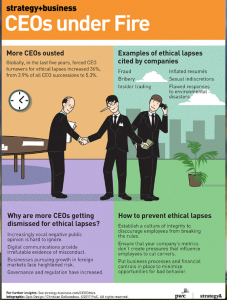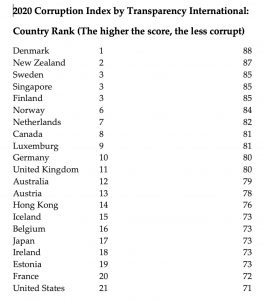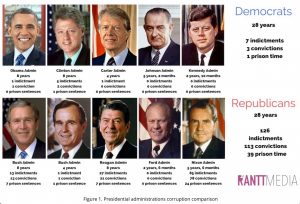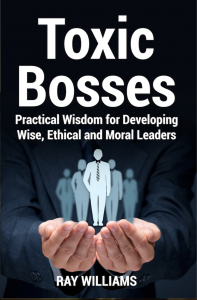By Ray Williams
August 13, 2021

Current times could be a perfect storm for the rise of unethical, and in some cases, amoral leaders.
We continue to destroy our natural habitat despite ominous warnings of the planet becoming uninhabitable. We continue to be led by dictators and autocrats despite the many lessons from history of the incredible damage they can cause. We continue to allow without correction racial and ethnic injustice and increasing economic and income inequality. We continue to allow the amoral, unethical behaviors of our leaders (and their followers) with no, or few consequences. Even worse, we continue to recruit and promote into leadership positions narcissists, sociopaths and psychopaths.

According to other research studies, leaders are considered unethical if they frequently operate with an egotistic intent, utilize controlling as opposed to empowering strategies to influence followers, and fail to abstain from vices. Additionally, leaders are typically regarded as unethical if their actions are grounded in manipulation and exploitation.
Unethical leader behaviors such as falsifying information, promoting their own self-serving personal vision; censure opposing views; demand their own decisions be accepted without question; engage in one-way communication; show insensitivity to followers’ needs; and rely on convenient external moral standards to satisfy self-interests are far too common place.
Before the pandemic, an estimated $455 billion of the $7.35 trillion spent annually on healthcare worldwide was lost to fraud and corruption. Today, as governments are ramping up pandemic response spending to unprecedented levels with understandable urgency and desperation, the risk of corruption and misappropriation has increased exponentially.
A recent survey by a German anti-fraud consulting company found that a majority of the 58 countries surveyed experienced corruption related to purchasing and/or access to personal protective equipment during the COVID-19 virus pandemic. And a report from the Lawyers Council for Civil and Economic Rights found that government contracts for the coronavirus response have been riddled with irregularities in dozens of countries.
Corruption is not restricted to Third World countries. Between 1990 and 2012, US federal prosecutors convicted more than 10,000 government officials of acts of official corruption, such as conflict of interest, fraud, campaign-finance violations, and obstruction of justice.
Transparency International, a non-profit institution annually ranking countries according the prevalence of corruption each country, has released the 2020 Corruption Index.

In addition, The World Economic Forum’s “The Global Competitiveness Report on Corruption” shows corruption to be a rather pervasive problem in the U.S., compared to most other OECD countries (the higher the number # the more corrupt):
- On “Diversion of Public Funds [due to corruption],” the U.S. ranks #34.
- On “Irregular Payments and Bribes” (which is perhaps an even better measure of lack of corruption) the U.S. is #42.
- On “Public Trust in Politicians,” the U.S. is #54.
- On “Judicial Independence,” the U.S. is #38.
- On “Favoritism in Decisions of Government Officials” (otherwise known as governmental “cronyism”), the U.S. is #59.
- On “Organized Crime,” the U.S. is #87.
- On “Ethical Behavior of Firms,” the U.S. is #29.
- On “Transparency of Governmental Policymaking,” the U.S. is #56.
- On “Property Rights” protection (the basic law-and-order measure), the U.S. is #42.
A study from the consulting division of PwC, one the nation’s largest auditing have been tracking executive turnover for almost 20 years. PwC reports that scandals over bad behavior rather not poor financial performance were the leading cause of leadership dismissals among the world’s 2,500 largest public companies. The report concluded that “thirty-nine percent of the 89 CEOs who departed in 2018 left for reasons related to unethical behavior stemming from allegations of sexual misconduct or ethical lapses connected to things like fraud, bribery and insider trading.”
A study by He Bin and Sun Xu published in the Frontiers of Psychology reported that “organizations often develop norms that tolerate the violation of moral standards if it is beneficial to the organization. Studies have shown that, when people are surrounded by the unethical behavior of their peers, they are likely to imitate the behavior of these peers, because such behaviors demonstrate apparently appropriate organizational norms.”
Stephen Chen, writing in the Journal of Public Affairs, says “misreporting of a firm’s financial performance increases the CEO’s confidence which in turn increases the need to misreport performance in order to feed an ever increasing ego.” This growth of false reporting is often fueled by statements by third party financial analysts and the media which praise the CEO. And the actions are not restricted to financial data. Increasingly many CEOs are now assessed on the achievement of earnings targets set by financial analysts and investors.
There’s another source of positive reinforcement of business leaders’ unethical behavior—that emanates from many business schools, and enforced by corporate lawyers and demanded by activist investors and Wall Street analysts — which focuses on maximizing shareholder value through whatever means is necessary to boost the share price this quarter and the next. Over the years, an exclusive focus on shareholder value has been used to justify cheating or deceiving customers, squeezing workers and suppliers, avoiding taxes and lavishing stock options on executives. Most of what people find so distasteful about American capitalism — the ruthlessness, the greed, the inequality — has its roots in this misguided and twisted notion that business only exists for financial gain for the shareholders (and greedy CEOs).
Yet, unethical behavior also results in lower long-term financial performance as measured by metrics such as economic value-added, and market value-added as shown in the 2003 study “Does Business Ethics Pay?” in the Institute of Business Ethics, by Simon Webley and Elise More.
According to studies conducted by the Online Center for Engineering and Science at Case Western Reserve University, “as senior executive unethical behaviors flourish, workers throughout the organization note them, almost as permission to replicate, and unethical behavior becomes a cultural norm. Ultimately, this culture results in detrimental behaviors such as under delivering on promises, turf-guarding, goal-lowering, budget-twisting, fact-hiding, detail-skipping, credit-hogging, and scapegoating.”
The U.S. Ethics and Compliance Initiative, (ECI) the oldest non-profit in the ethics & compliance industry is a research and membership organization comprised by institutions across every sector, dedicated to the highest levels of integrity.
According to ECI, the single biggest influence on employee conduct is the organization’s culture. ECI argues that in strong ethical cultures, wrongdoing is significantly reduced. Yet only one in five employees, according to ECI’s study of American business, indicate that their company has such an environment. This status remains largely unchanged over the past decade. Furthermore, in 2017, according to ECI’s research 40% of employees believed that their company had a weak ethical culture. That trend that has not significantly changed since 2000.
In an article in The New Yorker, Robin Wright asks the question, “Is America Becoming a Banana Republic?” She says, “the chief principle of ‘banana-ism’ is that of ‘kleptocracy’, whereby those in positions of influence use their time in office to maximize their own gains, always ensuring that any shortfall is made up by those unfortunates whose daily life involves earning money rather than making it.” She concludes the United States clearly fits those descriptors.
The National Business Ethics Survey of nearly 4,700 employees at by the Ethics Resource Center (ERC), an independent research firm for the advancement of high ethical standards and practices in public and private organizations, has revealed the percentage of companies with a weak ethical culture is on the rise, as is the number of employees who experienced retaliation for blowing the whistle on observed misconduct. The report concluded that “American business may be on the cusp of a large downward shift in ethical conduct.”
Among the other conclusions of the report were the following:
- The five most frequently observed misconduct events were misuse of company time (33%); abusive behavior (21%); company resource abuse (20%); lying to employees (20%); and violating corporate Internet use policies (16%).
- The proportion of employees who observed misconduct and then decided to report it climbed to a record high of 65%.
- Nearly 70% of workers who witnessed violations involved stealing or improper payment offers to public officials.
- Almost two-thirds of employees reported: Improper use of competitors’ inside information; the falsification of expense reports; trading on inside information; making improper political contributions; abusive behavior or behavior that creates a hostile work environment; and the falsification and/or manipulation of financial reporting information.
- Many of the retaliatory actions were severe: exclusions from decisions and work activity by supervisor or management (64%); verbally abused by supervisor or someone else in management (62%); verbally abused by other employees (51 %); experienced online harassment (31%); experienced physical harm to their person or property (31%); and harassed at home (29%).
- Further, the NBES reported the percentage of employees who perceived pressure to compromise their company’s ethical standards, or even break the law so they could perform their jobs, jumped significantly from 13% in 2011 to 29% in 2017.
- As expected, there’s a very strong correlation between a strong ethical culture and lower observed misconduct, the report concluded: “Misconduct was observed in only 29% of companies with a strong ethical culture but seen in 90% of those with a weak ethical culture”.
Celia Moore and her colleagues in their article in the Journal of Applied Psychology entitled “Leaders Matter Morally: The Role of Ethical Leadership in Shaping Employee Moral Cognition and Misconduct,” concluded among other things, “leaders with low-ethical standards might amplify their subordinates’ propensities to morally disengage.”
For instance, Moore states, “if one has a leader who defines success in terms of results rather than the means through which they are obtained, subordinates could more easily morally justify short-changing customers in the interest of profit.” Moore found that leaders “who demand obedience or absolute loyalty from their subordinates facilitate their subordinates’ displacement of responsibility, such that individual employees can shift their moral agency onto their domineering leader.”
Americans have lost their faith in the business world and the people who run it. In a Roper poll, only 2% of respondents felt that Fortune 500 CEOs were “very trustworthy”; the overwhelming majority of Americans (72%) believe that “wrongdoing” is widespread in the business world. Robert S. Miller, CEO of Delphi, asserts: “Society has come to believe that the term ‘crooked CEO’ is redundant”.
The Concept of Unethical Leadership
Unethical behavior can be defined as behaviors that are illegal and/or contrary to societal norms.
Unethical leadership, however, can spread to others like a virus. In seeking to accomplish organizational goals, leaders can encourage corrupt and unethical acts within their organizations. For instance, Ronald W. Clement’s review of corporate scandals in Fortune 100 corporations concluded that actions perpetrated by executives, boards of directors, and government officials were the primary cause of such transgressions. Leaders can encourage unethical behavior among followers without engaging in the behavior themselves and do so by way of rewards, condoning non-conformers, and ignoring unethical acts. For instance, qualitative research shows leaders who reward short-term results, model aggressive and Machiavellian behavior, do not punish followers’ wrongdoing, and promote like-minded individuals heighten unethical behavior within organizations.
Such embedded practices can insulate leaders from primary blame, essentially providing them “plausible deniability”. Leaders who engage in, enable, or foster unethical acts within their organizations do not display ethical leadership. Instead, leaders who harness and embed unethical behavior of their followers display unethical leadership.
Diane J. Chandler of Regent University School published an article in the International Journal of Leadership Studies, highlighting the lack of effective organizational processes and oversight. In reviewing the research on the subject she found:
- The lack of effective organizational processes and accountability oversight further contributes to unethical leadership behavior.
- The larger the organization, the more likely bureaucratic structures will challenge the communication system and influence organizational culture.
- Effective accountability structures and processes help offset the negative effects of power and encourage moral leadership through governing and advisory boards, for example .
In a qualitative study published in the International Journal of Disclosure and Governance, for the Rutgers University Institute for Ethical Leadership by Alex Plinio, J.M Young and L. Lavery trust in leadership is waning and the situation is worsened by a weak economy. The authors also noted an alarming increase in misconduct by employees at all levels. Other conclusions:
- The situation worsens as companies take measures to combat the economic and pandemic crises.
- Reporting of misconduct is hampered by fear of retaliation.
- Trust in leaders is low, trust in CEOs is lower.
- The ethics of the developing workforce does not show signs of improvement.
- Ethics programs make a difference.
Hershey H. Friedman, Linda W Friedman and Frimette Kass-Shraibman, wrote an article entitled, “Ethical Imperatives of CEOs: Creating the Virtuous Corporation” in the Journal of Business Systems, Governance & Ethics, in which they argue, “Companies that are going to thrive must have a soul. Those that are only concerned with ‘maximizing shareholder wealth’ or ‘maximizing profit’ will find themselves going the way Enron went. CEOs will have to lead the revolution and should be the ones exhorting executives to make spiritual values or virtue, not just profit, the core values of a firm. A true measure of corporate performance is multidimensional and has to include the short-term, the long-term, risk, environmental issues, society, employees, customers, suppliers, and government.”
Is there a difference between Republican and Democrat leaders when it comes to corruption?
In an article for Rantt Media, Rand Engle provided data comparing Republican vs Democrat Presidents in terms of corruption indictments and prosecutions. Rand reports this: “Republican administrations have vastly more corruption than Democratic administrations. We provide new research on the numbers to make the case. We compared 28 years each of Democratic and Republican administrations, 1961-2016, five Presidents from each party. During that period Republicans scored eighteen times more individuals and entities indicted, thirty-eight times more convictions, and thirty-nine times more individuals who had prison time.” It should be noted that at the time the article was published it does not include data from the Trump administration, which would skew the results considerably.

In a separate article comparing the economic performance of Republican vs Democratic Presidents, the latter were clearly superior: “Economic catastrophes have been Republican. The Panic of 1873, the Great Depression of 1929, the Great Recession of 2008, to name the biggest US economic debacles of the last 150 years, were driven by out of control speculation or economic ignorance — and they were all Republican. The Tariff Act of 1930, passed over the objections of virtually the entire American economics profession, lead to plummeting international trade, arguably turning a recession into a depression. We see some of the same blissful ignorance in the current government. Smaller economic downturns, recessions, were also more frequent during Republican governments. Of course, some of the rich profited handsomely from what ruined average people, but many also saw their fortunes devastated,” Engle reports.
Guiding Principles for Ethical Leaders
Robert Chesnut is a Silicon Valley expert and the Chief Ethics Officer of Airbnb Inc., his new book, Intentional Integrity: How Smart Companies Can Lead an Ethical Revolution, describes how today’s headlines are filled with stories of bad behavior by companies and leaders—sexual harassment, fraud, conflicts of interest, privacy violations, anti-competitive behavior, and more.
Chesnut argues that for much of the 20th century, companies were focused on profit, revenue, and driving shareholder value. Integrity has become compliance, simply something that you have to get through because it’s legally required. But those actions don’t inspire or motivate people, because they realize that those materials were produced by somebody else, for somebody else. Instead, corporate integrity is a muscle that companies must learn to exercise intentionally.
He goes on to say that to build integrity in a company, we just have to weed out the bad actors. Behavioral psychologists have demonstrated that when you place human beings in an environment where they have even a small incentive to lie, a large number of people, 70% or more, will fudge the truth for their own benefit. On the other hand, if you are consistently reminded of your better self, if the people around you talk about doing what is right, and if leaders in particular are acting with integrity, then you are far more likely to act with integrity yourself.
Chesnut proposes Six C’s to foster corporate integrity:
- The first C stands for Chief Executive Officer, because it all starts at the top. If the company has no noble purpose that leadership is committed to following, then any effort at integrity will almost certainly fail.
- The second C stands for a Customized Code of Ethics. You can’t take someone else’s code of ethics, slap your name on it, and call it your own; you need something specific and appropriate for your company.
- The third C is for Communicating the Code, because employees want to hear how their new company is committed to values that align with their own.
- The fourth C is a Clear Reporting System. You have to tell employees that you really do want to hear when problems arise, and you need a system that makes everyone feel comfortable coming forward with their concerns.
- The fifth C is Consequences—show that you’re committed to following through when even a senior-level employee breaks the rules.
- And finally, the sixth C is Constant. Keeping a constant flow of communication about the importance of integrity is critical to building that environment that feeds the good wolf in all.
Here are some more suggestions on how society in general and organizations specifically can emphasize to a greater degree guiding principles for moral, ethical and wise behavior, with a focus on leaders.
- Place an emphasis on integrity in behaviors—demand it of ourselves and those who we work with and lead us.
- Stop recruiting overconfident, narcissistic and sociopathic/psychopathic people for leadership positions in our institutions and organizations, and opt instead for the honest, humble and compassionate leaders.
- Recruit and promote more women into leadership positions. Research has shown that female leaders are less prone to corrupt and unethical behavior.
- Engage in a serious overhaul of the current capitalistic system which has a structure and practices that facilitate amoral and unethical behavior, and unwise decisions to the detriment of the populace and the planet. In particular, shareholder interests as the primary driver for business decisions must be abandoned. Encourage business organizations to complete a serious overhaul of their current ethical principles and policies.
- Encourage business schools to put more emphasis on the study of humanities including philosophy and ethics; provide more support for the humanities in post-secondary education rather than the current emphasis on technical knowledge and expertise in business.
- Encourage business leaders (and their employees) to become more involved in worthy causes that benefit society and the planet that are not tied to economic or financial gain.
- Enact stronger laws, policies, regulations and procedures to protect whistle blowers who witness or encounter unethical (or amoral) organizational practices.
- Emphasize the importance of developing self-awareness and emotional intelligence in leadership development programs and training.
- Encourage leader practices that promote exposure to various forms of ethnic and cultural (and gender) diversity.
- Encourage public school system to include in both teacher training and curriculum the teaching of civics, moral and ethical behavior, critical thinking and Socratic dialogue.
- Encourage of public school system to initiate curriculum and practical experiences for students aimed at social good and environmental protection.
- Engage in “good conversations” about moral values, and ethical behavior.
- Exposure to the complexity of whole systems, rather than only discrete small parts or functional area.
- Study significant issues from an integrated perspective rather than a narrow perspective.
- Work collaboratively with others on significant problems or challenges that impact the welfare of all.
- Develop excellence in listening and perspective-taking.
- Work as a volunteer on an issue or project that benefits others, humanity and/or the planet without the need for recognition or compensation.
- Actively engage in the responsibilities of being a citizen in a democracy.
- Be an advocate for justice and fairness for all.
In my new book, Toxic Bosses: Practical Wisdom for Developing Wise, ethical and Moral Leaders,I argue that now, more than ever, individuals and organizations need to be vigilant in dealing with unethical leaders, and proactive in implementing measures for the strengthening of ethical and moral structures and practices in organizational cultures.


